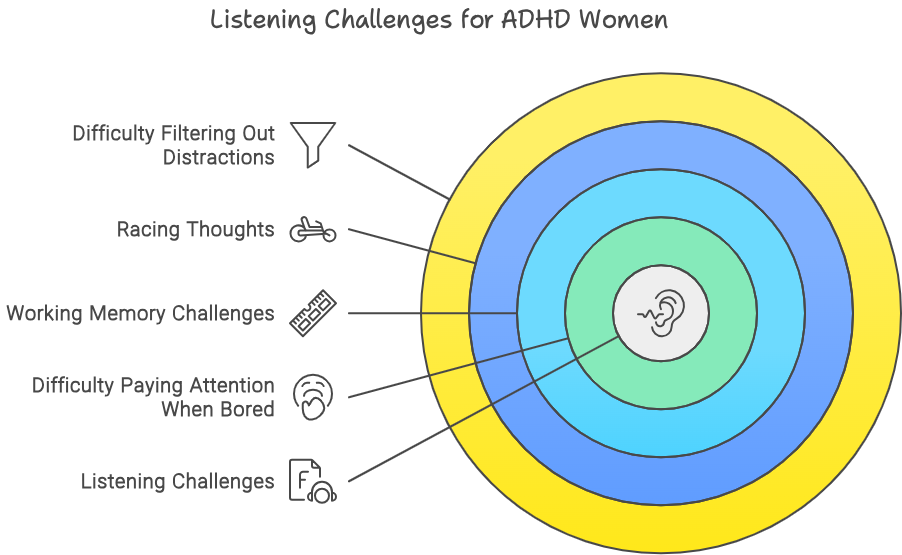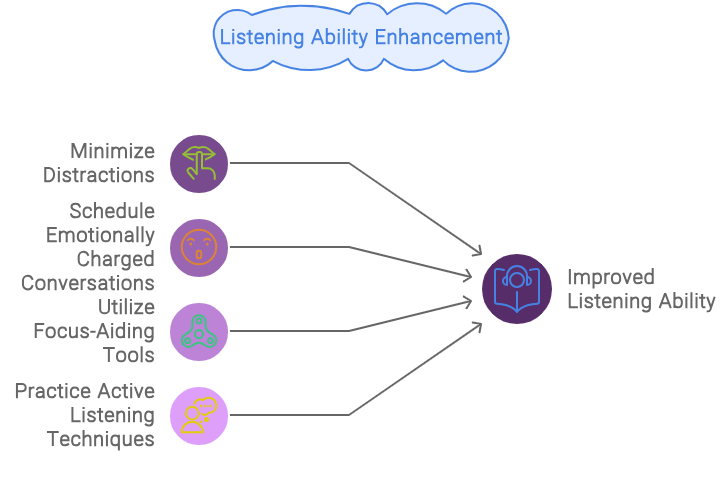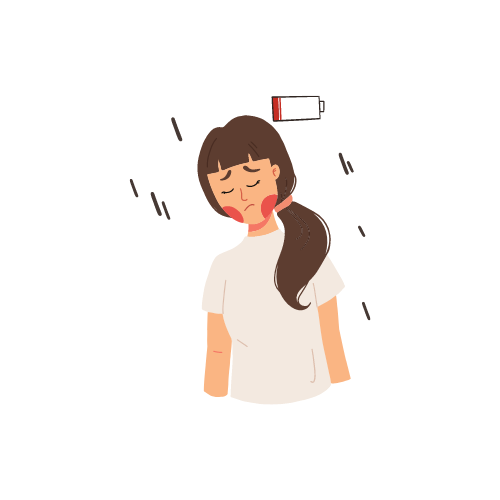How ADHD Women Can Improve Their Listening Skills: Effective Strategies for Success
Introduction
ADHD women often face unique challenges when it comes to listening, which can lead to misunderstandings in both personal and professional relationships. These difficulties may cause others to misinterpret listening challenges as a lack of interest or attention, potentially resulting in feelings of disconnect or conflict. Understanding and addressing these challenges is crucial for fostering better communication and stronger relationships.
Understanding the Struggles of ADHD Women with Listening

Listening can be challenging for women with ADHD due to several factors that have to do with their brain-based differences.
✅Difficulty Paying Attention When Bored
Boredom can cause the mind to wander, making it hard to stay engaged in the conversation.
ADHD can make holding onto details during a conversation difficult, leading to missed information.
✅Racing Thoughts:
A busy mind may divert attention from the conversation, mainly when preoccupied with other thoughts.
✅Difficulty Filtering Out Distractions/Sensory Overload:
External stimuli can overwhelm the brain, making concentration challenging.
✅Emotional Regulation Challenges/Rejection Sensitive Dysphoria (RSD):
Emotional dysregulation can interfere with the ability to absorb and process information during conversations.
What can you start doing right now?
If you're an ADHD woman, you might seek ways to support your listening skills and make conversations easier. Here are some strategies that my clients have found helpful.
Advocating for Yourself with Friends and Family
Self-advocacy is critical to improving communication with loved ones.
🙂Be Honest About Your Needs
Clearly explain to friends and family how ADHD impacts your ability to listen. This transparency can reduce frustration and foster understanding.
🙂Set Boundaries for Conversations
If long discussions are overwhelming, establish time limits. For example, you might say, "I want to give you my full attention, but I might need a break after 20 minutes."
🙂Request Clarification
Don’t hesitate to ask for repetition or clarification if you lose track during a conversation. This shows your engagement and desire to understand.
🙂Use Visual or Written Cues
Taking notes can help you stay focused and avoid missing important points.
Self-Accommodation Strategies

Here are some self-accommodation techniques:
✅ Minimize Distractions:
Choose quiet, distraction-free environments for meaningful conversations to help maintain focus.
✅ Schedule Emotionally Charged Conversations:
Request to have intense discussions when you feel most emotionally balanced. This will enable you to manage your responses more effectively.
✅ Utilize Focus-Aiding Tools
Tools like fidget toys, note-taking apps, or doodling can help you stay engaged and attentive during conversations.
✅ Practice Active Listening Techniques:
Summarizing the speaker's words helps ensure your understanding and keeps you focused on the conversation.
Practicing Self-Compassion
It’s essential to treat yourself with kindness, especially when facing listening challenges. Acknowledge that these difficulties are part of your ADHD and not a personal failing and offer yourself understanding and patience as you work on improving.
💖Avoid Negative Self-Talk
Recognize that your ADHD-related listening challenges are not intentional, and refrain from self-criticism.
💖Understand Neurodivergent Communication Differences:
Realize that your communication style may differ from neurotypical norms, and that’s okay. For example, interrupting or sharing similar experiences might be your way of connecting, even if it doesn’t fit conventional expectations.
💖Celebrate Small Wins:
Every time you successfully advocate for yourself or manage a conversation well, take a moment to acknowledge your progress. Each improvement, no matter how small, is a step forward.
Conclusion
Improving listening skills as a woman with ADHD is a journey that requires patience, self-advocacy, and self-compassion. By understanding your challenges, employing strategies for better communication, and being kind to yourself, you can enhance your relationships and navigate conversations more effectively.
Medical Disclaimer
The information on this website is for informational purposes only and is not a substitute for professional medical advice, diagnosis, or treatment. Always seek the advice of your healthcare provider with any questions you may have. Do not disregard medical advice or delay seeking it because of something you read here. Use of this information is at your own risk.


